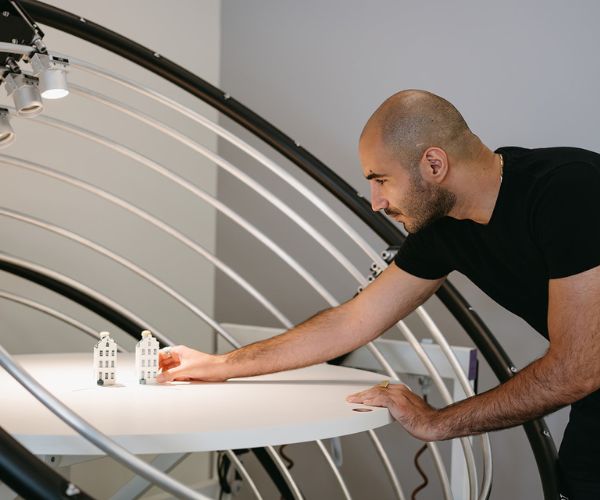Visit Carleton! Book your tour today.
Program Details
Civil engineers provide and maintain all of the infrastructure that we depend on daily. They plan, design, construct, operate, manage and maintain airports, bridges, buildings, dams, highways, railways, pipeline systems, tunnels, water distribution systems and treatment facilities.
The Faculty of Engineering and Design’s Civil Engineering program in the Department of Civil and Environmental Engineering starts by giving students a thorough background in mathematics, chemistry, physics, thermodynamics, geology, experiment design and civil engineering materials. Focus on engineering design in the areas of structural, geotechnical, transportation and municipal engineering.
The Civil Engineering program is fully accredited by the Canadian Engineering Accreditation Board, allowing graduates to meet the educational requirements for registering as a professional engineer.
State-of-the-Art Facilities
You may become involved in research studies that test the materials of large-scale specimens using the specialized facilities of the strong floor in the Minto Centre for Advanced Studies in Engineering.
Work Experience
A Co-op option is available. Co-op is the opportunity to get a head start on a career. Co-op work terms allow for the development of key employability skills, exploration of career options and graduation with tangible, workplace experience. The program also has a first-year internship opportunity.

Get started in Carleton360 to receive tailored information on our programs, student services and community.

Career Outcomes
Explore your passions, refine new skills and discover the career that’s right for you.
The skills learned through the study of civil engineering are highly transferable and will prepare you for a wide range of careers.
Sample Careers
- Build
- Construction Management
- Evaluate and Maintain Infrastructure
- Geotechnical Design
- Infrastructure Maintenance and Security
- Management
- Municipal Systems
- On-Site Construction Management and Supervision
- Project Management
- Security and Comfort
- Structural Design
- Transportation
- Urban and Rural Planning

Sample Courses
ECOR 1048 – Dynamics
Kinematics and kinetics of a particle. Principle of work and energy. Conservation of energy, conservative forces, potential energy. Principles of impulse and momentum, conservation of momentum for a system of particles.
ECOR 2050 - Design and Analysis of Engineering Experiments
Statistics and the design of engineering experiments. Basic exploratory data analysis. Central limit theorem. Hypothesis testing: t-test, chi-square test, type-I and type-II errors, multiple-comparison problem. Statistical bias. Design of experiments: randomization, blocking and replication, randomized blocking designs, factorial design. Statistical software packages.
Visit the Undergraduate Calendar to view a comprehensive list of course offerings for this program and discover the exciting things Carleton students are learning in the classroom!


